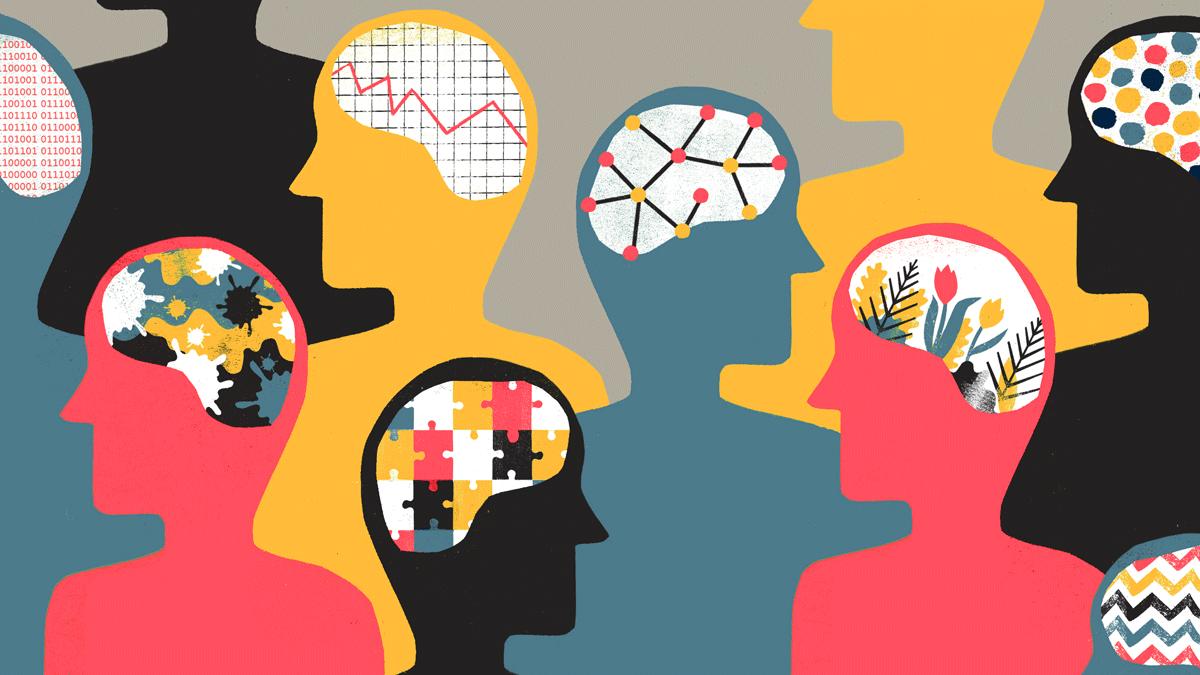AI In Mental Health: Benefits and Examples
-By Sania Patel

Mental health is commonly described as the emotional, psychological, and social well-being of a person. These factors play a key role in how a person thinks, feels, and acts. Mental health also determines how people handle certain situations, relate to others, and make choices. A person’s state of mind can also affect their physical wellbeing; poor mental health can lead to conditions such as diabetes, heart disease, and stroke. The Centers for Disease Control and Prevention (CDC) have recognized mental illnesses to be the most common health condition in the United States. The CDC reports,
“more than 50 percent will be diagnosed with a mental illness or disorder at some point in their lifetime.”
AI, or artificial intelligence, is intelligence demonstrated by machines, as opposed to the natural intelligence displayed by animals including humans. As seen in the past several years, AI has the capability of performing various human tasks such as driving, security, and treating patients. The four types of AI are reactive machines, limited memory, theory of mind, and self-awareness. Some examples of AI include email spam filters, conversational robots, smart assistants, and self-driving cars.
As the progression of AI development grows, the capabilities become expanded. Due to the COVID-19 pandemic, mental health disorders affect one-fifths of people in the U.S., with 40 percent of Americans developing symptoms of anxiety or depression. The number of people applying for help with depression or anxiety in the US has soared, according to the 2021 State of Mental Health in America report. As many as 315,220 people took anxiety tests from January to September 2020, 93% up from the entire 2019. The number of people taking depression screens increased by 62% to 534,784 people.
In the near future, AI will begin to revolutionize mental health care. In the form of chatbots and virtual assistants, AI could be formed to hold conversations with people and act as stand-in therapists. According to Itrex,
“Only 18% would favor humans over technology to discuss their mental health struggles compared to 68% who would choose robots, according to a recent study conducted by Oracle and Workplace Intelligence. People tend to believe that robots don’t judge, are unbiased, and can provide an instant answer to a health-related question.”
The Trevor Project, an LGTBQ+ support group, recently partnered with Google to launch the Crisis Contact Stimulator. This simulator uses AI to hold digital conversations with youths who suffer from depression, anxiety, and suicidal thoughts. It also allows aspiring counselors to experience realistic conversations before taking live ones. The stimulator will not only help youths in crisis, but it will also benefit therapists and counselors in training.
The benefits of AI in mental health care will allow treatment to become more affordable, accessible, and efficient; it will also offer greater privacy for the patients and support for the therapists.
Unlike traditional counseling, AI-based mental health care services allow people to have access to therapeutics help anytime, anywhere. Because the program is run by a computer and not a human, services will become cheaper, as people no longer have to pay for missed appointments, standard therapy rates, and other arrangements. Along with that, AI-based services can be used anywhere. This allows greater access to health care treatment, as people no longer have to work around busy schedules, short staffing, and scheduling hassles. AI in mental health care also allows for greater efficiency. Artificial intelligence algorithms for mental health care have already been proven to be successful in detecting symptoms of depression, PTSD, anxiety, and other behavioral signals. There have also been studies that prove AI to be more accurate when diagnosing patients and determining mental stress.
By involving AI in mental health care, patients are provided with more privacy, which eases them into opening up. AI-based therapists are proven to make people feel less self-restrained to share personal feelings and memories. Many people can feel shame in face-to-face interactions because of stigma or fear of being judged. According to Meghan Collie, from Global News,
“almost a quarter of people lie to doctors, with the most hushed topics being smoking, drinking habits, and sexual activity. For many, it’s easier to admit the true extent of their behavior to a robot because the robot won’t judge.”
Finally, AI’s presence in mental health care services offers support for therapists. According to Peter Foltz, a research professor at the University of Colorado Boulder,
“AI could be an effective way for clinicians to make the best the time they have with patients.”
AI is able to quickly and accurately diagnose patients, which can help therapists determine treatment options and develop approach methods.
As AI enters mental health care, several programs are being developed to advance the current services available. For example, Companion MX analyzes users’ voices to detect signs of anxiety, while Sentio Solutions combines physiological signs and automated interventions to help consumers manage their stress and anxiety. Muse, an EEG-powered headband, helps users practice meditation by providing live feedback on brain activity, and the Apollo Neuro monitors users’ heart rate to provide stress relief periodically.
These examples, along with the evidence of expanding mental health care needs, prove the inevitable expansion of AI’s presence in the current services and treatment options. AI allows mental health care to be accessible to all people and eliminates racism, discrimination, and other negative factors in the diagnosis and treatment process. The availability of AI in these services will help people get access to fair and equal treatment and offer those who have been struggling to find peace and establish a future for themselves. If used for the sole purpose of helping people, AI will have a dramatic effect on mental health care services and will revolutionize treatment, promoting better mental health for all people.